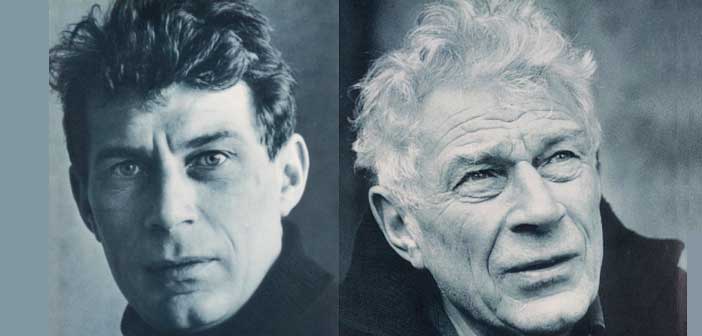Source: Counterfire
The radicalism of John Berger, who has died aged 90, was wholly reliable and outspoken and he will be an inspiration for generations to come.
John Berger played an implausible, almost impossible role in late 20th century culture. Self-exiled from Britain in the early 1960s living half his time in a French mountain village, his words from afar provided an intimate and engaged commentary on some of the defining injustices and outrages of the era and some of the most important radical art criticism ever produced.He wrote a series of books about the lives of peasants and migrant workers, including the photo documentary with Jean Mohr called A Seventh Man, which should be required reading in schools around Europe today. The opening note to the reader prophetically suggests that ‘to outline the experience of the migrant worker and to relate this to what surrounds him – both physically and historically – is to grasp more survey the political reality of the world at this moment. The subject is Europe. The meaning is global. Its theme is unfreedom’.
Despite his supreme distance from intellectual fads or fashions, he directed probably the most important experiment in the documentary form ever made for British TV. The four-part series Ways of Seeing was a mind-blowing assault on the elitist, sexist assumptions of the capitalist cultural establishment. It managed to be both iconoclastic and deeply insightful at the same time by insisting on locating art and artist both in their historical moment and the relations of artistic production. Strong stuff for the BBC.
He followed it up with a stream of essays and books on art and culture that have proved perhaps more than any other body of work in the English language the enormous importance that creatively handled Marxism has for the appreciation of art and culture. Some of the best of them have recently been published in two excellent Verso volumes, Portraits and Landscapes.
Ever sensitive to individual artists’ dilemmas and achievements and at the same time enraged by the barriers to self-expression produced by a society based on profit rather than need, he was the wise alter ego of every artist struggling to bear witness to a more and more degraded world. His book The Success and Failure of Picasso and the recently republished essay The Moment of Cubism together constitute one of the most convincing accounts of the potential and the limits of artistic liberation.
Because he perceived culture as the active interplay between human creativity and stubborn, given reality, again and again his essays shed light on both the artists’ work and their world. This on the Romantics:
Romanticism represented and acted out the full predicament of those who created the goddess of Liberty, put a flag in her hands and followed her only to find that she led them into an ambush: the ambush of reality. It is this predicament which explains the two faces of romanticism: its exploratory adventurousness and its morbid self-indulgence.
He tended to radicalise with time. Looking back in 1979 to an essay he wrote in 1968 about the importance of a political approach to art, he admitted that in some respects he might have become more tolerant:
But on the central issue I would be even more intransigent. I now believe there is an absolute incompatibility between art and private property, or between art and state property – unless the state is a plebeian democracy. Property must be destroyed before imagination can develop further.
His radicalism was wholly reliable and outspoken. Awarded the Booker Prize in 1972 for his novel G, on air he denounced the slave-derived wealth of the Booker family and donated half the prize money to the British chapter of the Black Panther Party. It is said that he was accompanied to the ceremony by a member of the Black Panther Party who urged him to ‘keep it cool’.
Subsequent writing on philosophy, the Palestinian struggle, the depredations of neoliberalism, on looking at photography and much, much more, adds to a rich archive of humanist Marxism that will be an inspiration for generations to come. Berger’s work demands recognition as a major achievement of modern culture.
The BBC film John Berger: The Art of Looking, made on the occasion of his 90th birthday, captures poignantly his inspirational work and life. Watch here…

